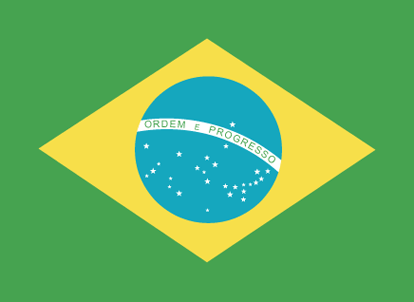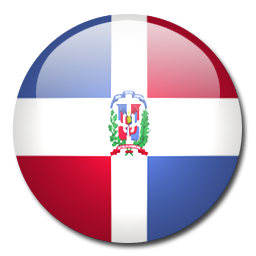| Brazil |

Background: | |
Following more than three centuries under Portuguese rule, Brazil gained its independence in 1822, maintaining a monarchical system of government until the abolition of slavery in 1888 and the subsequent proclamation of a republic by the military in 1889. Brazilian coffee exporters politically dominated the country until populist leader Getulio VARGAS rose to power in 1930. By far the largest and most populous country in South America, Brazil underwent more than a half century of populist and military government until 1985, when the military regime peacefully ceded power to civilian rulers. Brazil continues to pursue industrial and agricultural growth and development of its interior. Exploiting vast natural resources and a large labor pool, it is today South America's leading economic power and a regional leader, one of the first in the area to begin an economic recovery. Highly unequal income distribution and crime | |
Nationality: | |
noun: Brazilian(s) adjective: Brazilian | |
Ethnic Groups: | |
white 53.7%, mulatto (mixed white and black) 38.5%, black 6.2%, other (includes Japanese, Arab, Amerindian) 0.9%, unspecified 0.7% (2000 census) | |
Languages: | |
Portuguese (official and most widely spoken language) note: less common languages include Spanish (border areas and schools), German, Italian, Japanese, English, and a large number of minor Amerindian languages | |
Religions: | |
Roman Catholic (nominal) 73.6%, Protestant 15.4%, Spiritualist 1.3%, Bantu/voodoo 0.3%, other 1.8%, unspecified 0.2%, none 7.4% (2000 census) | |
Population: | |
205,716,890 (July 2012 est.) country comparison to the world: 5note: Brazil conducted a census in August 2000, which reported a population of 169,872,855; that figure was about 3.8% lower than projections by the US Census Bureau, and is close to the implied underenumeration of 4.6% for the 1991 census | |
Major Cities - Population: | |
Sao Paulo 19.96 million; Rio de Janeiro 11.836 million; Belo Horizonte 5.736 million; Porto Alegre 4.034 million; BRASILIA (capital) 3.789 million (2009) | |
| Statistics | |
| Percent Urbanization | 87 % |
| Total People Groups | 308 |
| Unreached People Groups | 29 |
| Region | Central and South America |
| 10/40 Window | No |
| Official National Language | Portuguese |
| Primary Religion | Christianity |
| Percent Christian Adherent | 90.1% [1] |
| Percent Evangelical | 25.3% [2] |
| Country Progress Level | 3.2  |
| Persecution Ranking | Not ranked (1=High to 50=Low OD) |
| Human Development Index | 0.699 (0=Low to 1=High UN) |














